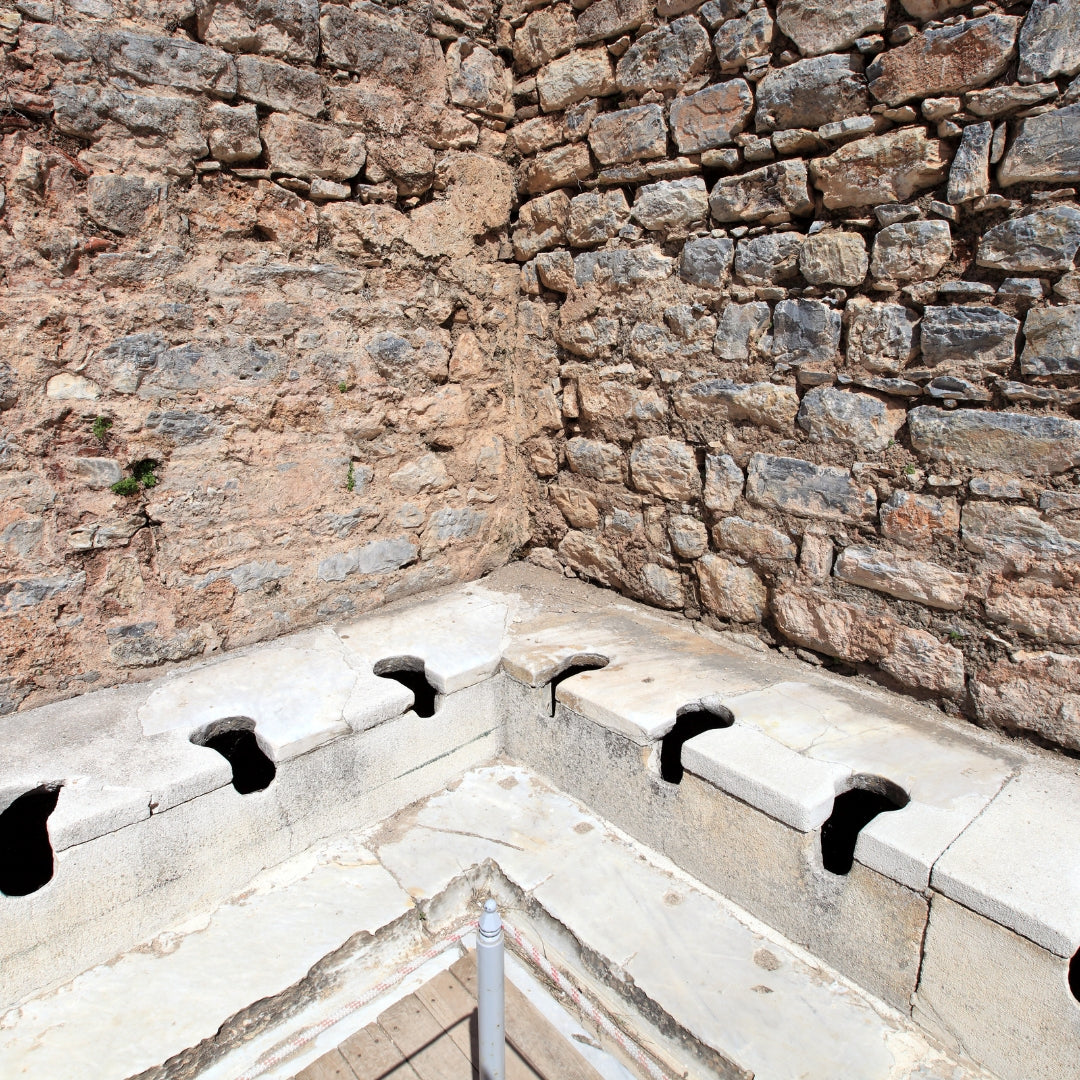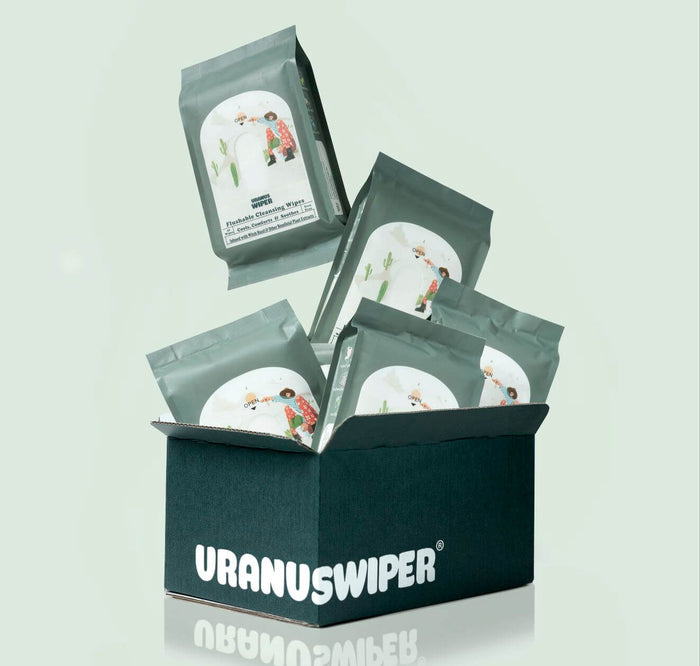
Loo-dicrous Romans: A Tale of Ancient Toilets
This blog’s topic is Roman toilets. So let’s get on with it, shall we?
Everyone over forty recalls the question the Monty Python team posed in their 1979 film, ‘The Life of Brian’: What did the Romans ever do for us? Answers included irrigation, education, roads, and cheese. But the Romans also knew a thing or two about sanitation.
It’s commonplace for adult 21st-century sophisticates to see ancient civilizations as not having a pot to piss in by comparison with our modern lives; however, this did not strictly apply to the occupants of ancient Roman villas because almost every home had at least one pot to piss in.
Ain’t nobody’s business but my own
The ancient Romans’ daily toilet routine featured piddling into small pots whenever nature dictated. The urine so collected was not, however, discarded willy-nilly.
Oh no! Urine was far too valuable to throw away. The citizens of Rome laundered their clothing in urine (this was, of course, two millennia before the invention of the twin tub and fabric softener). Still, it made sense, given that human urine contains lashings of ammonia, which helped get unmentionable stains out of gladiators’ tunics.
It could be said that ancient Romans quite literally ‘took the piss’— in the little pots, to large pots placed at street corners. These pots did not serve the same prettifying function as the decorative tubs of begonias often found in our town squares and other civic spaces today. Rather, these were reservoirs for the entire neighbourhood’s piddle production.
Entrepreneurial class Roman laundry owners collected, emptied and returned the large pots to the streets, and the cycle started over. So much for home toilet arrangements. But the Romans also had public toilets.
Public toilets Roman-style
Shuttling to and from big jars of pee with smaller jars of pee might have kept ancient Romans fit, but any health benefits were arguably more than wiped out by the horror of their public toilets. Picture Roman soldier Colonus Maximus rising in the morning, stretching, and heading to a public toilet for a number two – that’s (II) in Roman numerals. Colonus would sit down, do his business and reach not for toilet paper (then unavailable in Europe) but for a marvellous tool called a tersorium.
The tersorium, in plain language, was a scrubbing brush for the bottom. It consisted of a stick (abundantly available in rural Italy at the time) to one end of which was attached a Mediterranean sponge (abundant in the Mediterranean Sea back then.)
In the interests of personal hygiene, post-poop Colonus lifted the tersorium from a nearby bucket of vinegar and, reaching between his legs, used the spongy end to scrub his butt as vigorously as a sergeant major polishes the toes of his boots before marching to the parade ground.
At this point in our story, doubts arise about the ancient Roman’s understanding of hygiene as we currently understand it. Having buffed his anus until it shone, Colonus casually dropped the used tersorium back into the vinegar bucket for the next pooper to use! E.coli warning! Cross-contamination alert!
If only they’d had disposable tersoriums? Maybe they did. The Monty Python team didn’t say.
Shameless Plug
Speaking of history, it makes you wonder, doesn’t it? If our Roman friends had the chance to peek into the future, they might've turned a shade of legionary red with envy at Uranus Wiper’s sustainable toilet rolls! Each roll boasts a whopping 360 sheets of pure, eco-friendly bliss, all produced using renewable energy. A far cry from the days of communal sponges and vinegar buckets, these rolls are the epitome of hygienic luxury and environmental responsibility. So, while we chuckle at the antics of our ancient counterparts, we can sit comfortably (and sustainably) on our 21st-century thrones, thanks to Uranus Wiper.
Switch to bamboo loo rolls
 Premium Bamboo Toilet Roll | 48 Rolls | Extra Long 360 Sheets | Carbon-Neutral, Made with 100% Renewable Energy
Premium Bamboo Toilet Roll | 48 Rolls | Extra Long 360 Sheets | Carbon-Neutral, Made with 100% Renewable EnergyPremium Bamboo Toilet Roll | 48 Rolls | Extra Long 360 Sheets | Carbon-Neutral, Made with 100% Renewable Energy
$51.00



